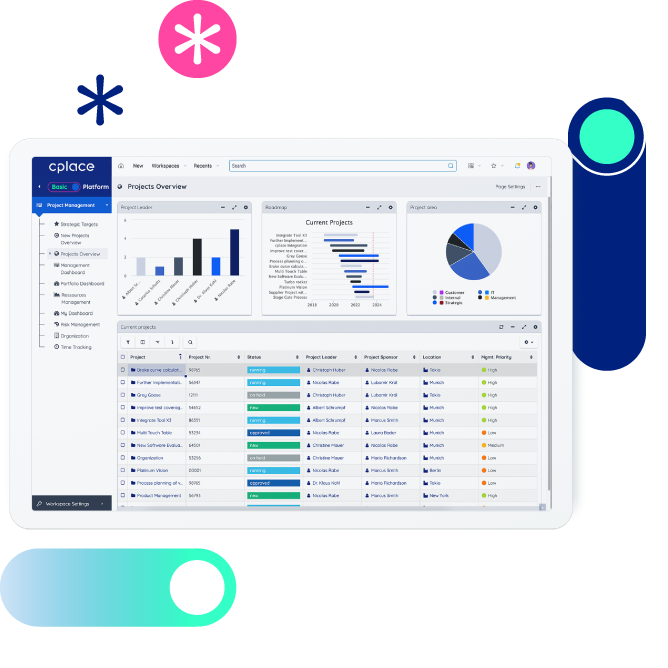Hybrid Project Management

What is hybrid project management?
The term “hybrid” refers to the combination of two independent approaches or things that are combined into one. This is the case with hybrid project management.
Simply put, it is the combination of at least two methods or tools from traditional and agile project management.
Traditional methods tend to be plan-driven, rule-based, and structured, while agile methods are visionary, feedback-driven, and flexible. The combination of very different approaches increases flexibility and thus ensures short reaction times and faster project development.
What is an example of hybrid project management?
For example, the agile planning method Scrum could be used for an initial concept and feasibility study. The results are transferred to a subproject of the classic V-model in the next step. To achieve the best possible economic result, hybrid project management is always divided into different, combined phases.
When does it make sense to use hybrid project management?
The use of hybrid project management makes sense whenever the traditional or agile approaches alone are not sufficient due to the complexity of the companies and the wide variety of requirements in the project work. While each approach has its strengths, they are often too one-sided to achieve the desired results in complex situations. Hybrid project management, with careful selection of methods, roles, and processes, can lead to the benefits of a variety of process models.
What is a hybrid concept?
Hybrid project management is the combination of classic and agile models. The following methods can be combined to form a hybrid approach:
Classic projekt management
- Watherfall Model
- PRINCE2
- V-Model
Agile project management
- Scrum
- Kanban
- Design Thinking
A hybrid approach would be the symbiosis of two of these approaches
- Waterfall & Scrum: traditional + agile
- Scrum & V-model: agile + traditional
- V-Scrum: traditional + agile
Depending on how the different methods interact, the individual phases of hybrid project management are performed accordingly and maintained until the project ends.
What are the roles in hybrid project management?
Clear roles are also important in hybrid project management-although there is no single standard. However, it is precisely because of the classic parts of hybrid project management that the project manager’s role is most in demand. His or her greatest challenge is to harmonize both worlds as well as possible with technical, methodological, and social competence. Therefore, it should be firmly established in the project which roles are responsible for the respective classic and agile processes.
The project manager communicates directly with the customer to understand their needs. He has overall commercial responsibility, selects suppliers based on quality and capability, and has technical responsibility for the entire project. This is the only way to make the best business decisions for the company.
Related terms: Agiles Project Management, Classic Project Management, Hybrid
